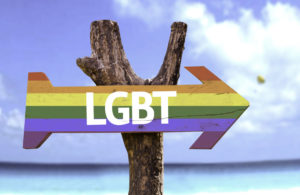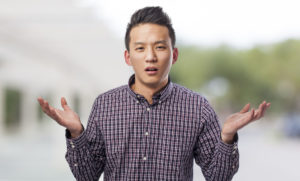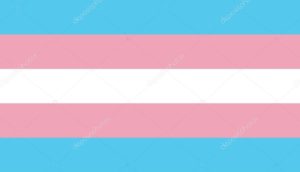
LGBT as Terminology
If you’ve been around mental health and social services as long as I have (over 27 years), you’ve seen some changes. Even if it’s less time than that, you’ve still seen changes, especially in language and what we call things in the vernacular.
Take “gay rights”. Just saying that term makes people my age (50’s) think of Anita Bryant in the 70’s taking a pie in the face from a heroic gay activist, or bell-bottomed lean guys with colorful hand-painted signs picketing outside in the sunny air.
Now, it’s all about “LGBT”. Which, it is what it is. We have evolved in our language to expand from calling things “gay” or “lesbian” or “bisexual” or “transgender” to simply LGBT+, which can include “queer”, “questioning”, “intersex”, “ally”, “asexual,”, and more. People now use “LGBT” as a global term for all sexual and gender minorities, in an effort to be maximally inclusive and more than a little politically correct. Don’t get me wrong; I’m a full supporter of all-inclusive, LGBTQ+ rights (I even teach a course on this for graduate MSW (Master of Social Work) students at the Suzanne Dworak-Peck School of Social Work at USC). But despite my support, advocacy, and even at times fiery activism (which gets me and my big mouth, or rather fast-typing fingers, into trouble sometimes), I have just a bit of a problem with the way things have turned out in that we no longer say “gay”, as much as “LGBT”, and I’m not sure that’s always good thing.
LGBT Term and Use in Therapy
Recently, on a Facebook community page devoted to therapists, a participant posted,”I need a referral for an LGBT couple on the Westside. Any recommendations?” And there were many responses, including from me, having had 27 years of working almost exclusively with gay men, as individuals but also in couples therapy as the founder of GayTherapyLA.com. Competition among local therapists being what it is, there were dozens of responses of local therapists saying a variation of “pick me! pick me!”, but what was curious was that nearly all of them assumed that this was a male-male couple, when the posting person did not say “gay male couple”, she said “LGBT”. It was as if the “LGBT” was some kind of pussyfooting-around actually saying the word G-A-Y, as if saying G-A-Y was somehow indelicate, or, dare I say it, stigmatizing? Is describing someone as “gay” somehow “uncomfortable” now, and the more genteel and politically correct term is “LGBT”? The problem with that is, what if her inquiry were not about a gay male couple? I asked this in the comments section. That “LGBT” couple could have been two lesbians. It could have been a bisexual, cisgender male with a trans feminine woman. It could have been two bisexual cisgender men. It could have been two trans feminine women. My point is, “LGBT” is an all-encompassing term to connote sexual minorities, and in that is where we gain maximum inclusion, at the important loss of specificity.
Because when it comes to therapy, therapist-client match IS a good idea, especially when it comes to particular cultural expertise and what clinicians call “cultural competency”. It’s not that straight therapists “can’t” treat gay – er, “LGBT” – clients, but it’s the problem that they “don’t know what they don’t know”, and I’ve had plenty of gay male clients who come to me after seeing even the most well-meaning straight therapists who, according to the client, “just don’t get it.” That’s where I come in as a long-term gay men’s specialist therapist, and my clients appreciate that in me. One of my most esteemed colleagues, Joe Kort, Ph.D., has a lot of experience training straight therapists on working with LGBT clients, and has written books and live trainings on this. His point is that straight therapists can’t really just fall out of bed and be effective in working with various LGBT clients; they need additional training to begin to understand (note: begin, not master) specific cultural considerations. Going into training, they don’t know what they don’t know, and coming out of it, it’s like so many light bulbs going off over their heads, at least making them somewhat more equipped to serve the LGBT community broadly – but that goes back to my “problem”: broadly.

Lesbians
Lesbians in general as a community have a problem with “invisibility”, meaning that attention, resources, and sometimes even overall respect can go to gay men first. Bisexuals have even more challenge in this area, both male-identifed and female-identified bisexuals, because some people (gay or straight) even challenge whether “bisexuals” even exist, calling them (pejoratively) either “confused straight people” or “gay people who just can’t commit” or have the cojones to “just come out already.” So, lumping lesbians and/or bisexuals, for example, in with the broader “LGBT” term, can contribute to everyone (politicians, physicians, other medical professionals, mental health professionals, teachers, sociologists, etc.) under-recognizing the sub-communities under “LGBT” that aren’t, frankly, the “G”: G-A-Y.
Same thing with the Trans community, of all kinds: female-to-male, male-to-female, gender fluid, or non-binary identity. Historically, the trans community has taken even more of a back seat to the other letters of L-G-B in terms of visibility and respect. Even non-discrimination policies in governments, corporations, and other institutions (schools, hospitals, non-profits) that protect the L-G-B often fail to include “gender identity” or “gender expression”. Trans rights are really on the frontier of the other L-G-B rights, and there isn’t even always consensus (among L-G-B!) that trans rights should even be included in “LGBT” and discussion of the rights of sexual and gender minorities (there was a controversy about this a few years ago with Human Rights Campaign).
LGBT Clinical Expertise
So, what’s the alternative to saying “LGBT”? There’s a saying, “never bring up a problem unless you can bring up a solution”, which might be OK for everyday go-along-to-get-along workplace functioning, but from a sociologically “woke” standpoint, I have a “problem” with that, too. I’m just saying that as the fight for FULL (and I do mean FULL) legal equality goes on, sometimes with more setbacks (such as the recent “religious freedom”/”licensed to discriminate” laws) than progress, so does our search for the meaningful, inclusive, effective way to describe various sexual minorities.
Clinically, this has significance, too. Along with being very specifically a gay men’s specialist therapist, including being an expert on gay male couple relationships, I’m also versant in men’s psychology in general, because, you know, gay men are still men. Although I can apply many considerations for sexual minorities to, say, lesbians, I’m not as expert in lesbians or lesbian relationships, which would require a more in-depth understanding of women’s psychology than I currently have. When I work with gay men, they are the focus of my clinical work, training, research, and writing; plus I am a gay man (in a long-term relationship) and have many (majority) gay male friends. I am what I do, 24/7/365. I can’t say that about the lesbian, bisexual, or trans experiences. I’m versant in straight relationships only because I was raised by heterosexual parents, siblings, grandparents, cousins, aunts/uncles, teachers, neighbors, peers, and the dominant cultural paradigm that is decidedly heterosexist; I get it. And that’s the importance, clinically, of specialization. Many women prefer to go to a female gynecologist, even if perhaps they are a numerical minority (in part due to discrimination against women in the hard sciences of education, such as medicine). They might say they “get it” more, with a more nuanced level of empathy. It’s the same with LGBT – but I mean L and G and B and T, not necessarily “LGBT”. There are – and probably should be – specialists in each of those areas, because if you really advocate for the “LGBT community”, you will realize that each “component” deserves its own specialization, attention, dignity, and expertise.

Solving the Problem of Language
I anticipate the criticism already, such as, “Dude, what the hell do you want?” in asking that the entire community of “LGBT+” sexual minorities have full legal civil rights and also sociological respect, and that no one term is probably ever going to please everyone. And the idea of striving for maximum inclusiveness, I believe, is a good one and a noble cause, and just like other terms in our vernacular have evolved historically from “coloreds” (or worse) to “African-Americans”, or from “savages” to “Native Americans”, the science of language to try to be affirmative, inclusive, and respectful of human diversity is ever-evolving.
My point is just that in striving to be all-inclusive nowadays in how we collectively refer to sexual minorities, let’s not forget that “lumping” all sexual minorities together into “LGBT” has an up side of all-inclusiveness, but also a down side of the loss of specificity that can lead to some “groups within the group” to be under-recognized, under-respected, and under-served, and while terminology can change, that hasn’t been changing fast enough. Lumping everyone together can also diminish the magnitude in numbers of these different communities, and could even make them all easier to dismiss. When bigots used to write off “the gays” with a derisive brush of the hand gesture, that generally meant gay men. Now, when they brush us all off with “Meh, the LGBT’s”, you’re talking about vastly bigger numbers of people. It’s like some kind of “batch delete” when you’re on a computer.
While we are stronger, together, as a unified LGBT community (and even stronger yet when sexual minorities fight the dominant paradigm in solidarity with other cultural minorities, such as People of Color (that, in itself, a dangerous “collective” term), or people with disabilities, or workers, or immigrants, etc., that does not obliterate the need for each sub-community to have its own research, attention, resources, and culturally-competent services from experts. The social service needs of the lesbian community differ from those of the gay male community, even if you just look at health care and mental health care alone. Same with the MTF and FTM trans communities. There is overlap, but without the specificity of social services of all kinds being offered in culturally-competent ways, whole groups of people end up being left out and under-served when it comes to community needs assessments. Lesbians who are victims of domestic violence can go to a “women’s only” shelter, but where do gay male victims of domestic violence go? Physicians (and other health care providers), mental health professionals, politicians, and others who serve the public don’t need a broad “everything, but nothing” understanding of LGBT people; they need to know how to competently serve all those implied in those communities. A physician who can expertly serve a lesbian student at a college health center can’t necessarily also serve a gay male, or MTF, or FTM trans student with equal nuance of medical expertise. One brief, one-day continuing education seminar (if that) on “LGBT student health needs” won’t cut it. And we see countless examples of this “too broad to be worth anything” education throwing a crumb to “cultural competency” as tokenism only. Cultural competency to serve all sexual minorities is a much bigger challenge than most people realize, if they bother to look at it in any depth at all. I teach an LGBT Psycho-Social-Political issues course for graduate MSW students at USC, but how many students take this elective? How many schools of social work even offer such a course? How many MA, Psy.D., or Ph.D. mental health training programs? How many physicians or mental health professionals have any training at all in LGBT-specific health or mental health, in either their graduate programs or continuing education?
Still a Work in Progress
I’ve been a specialist in gay men for over 27 years, and I still don’t claim to know everything about everything about this population. I will probably retire before I even come close. But I strive to study what being gay means, what being male means, and what being a variation of those two terms means for different ages, races, nationalities, health statuses, family origins, veteran status, etc. Even by sticking to the “G” in LGBT, it’s a daily charge. I have my work cut out for me. For anyone trying to competently serve anyone LGBT, we all do.
If you’re interested in having therapy or coaching services from someone who specializes in LGBT-affirmative therapy in general, and gay men’s therapy in particular, feel free to to reach out for more information or to make an appointment by calling/texting 310-339-5778 or emailing Ken@GayTherapyLA.com.



